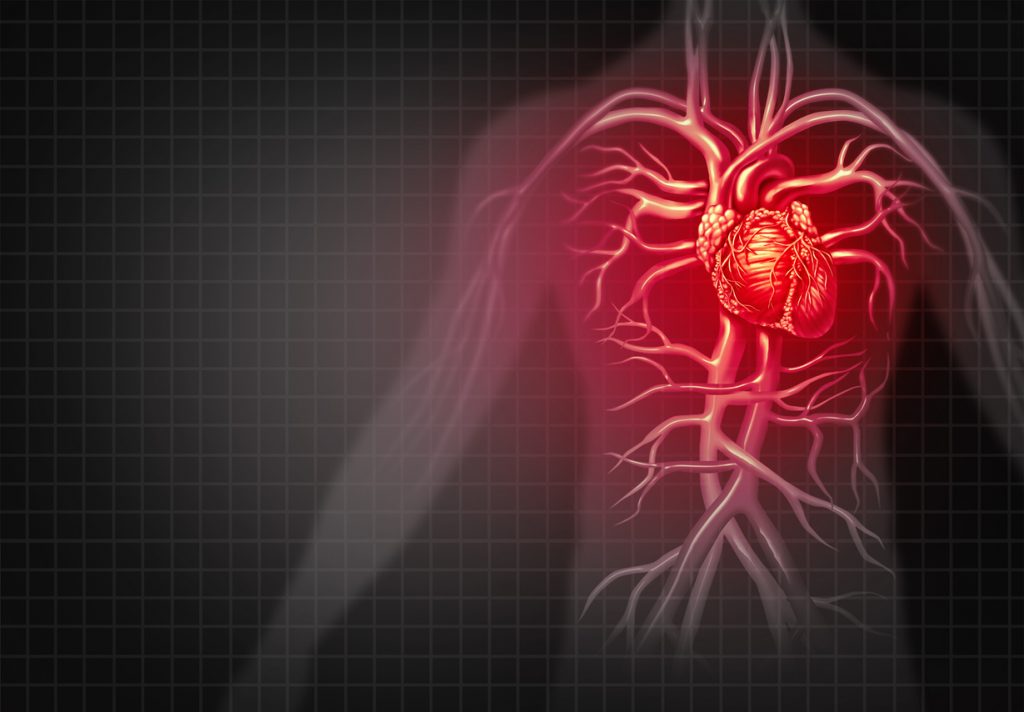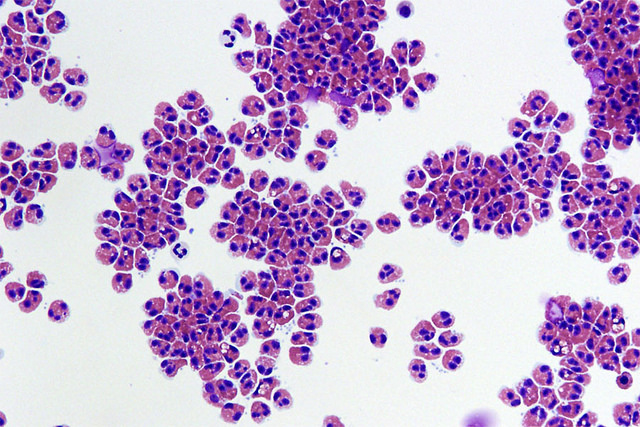PCI (optimal catheter-based coronary revascularization) + intensive medical therapy is superior to intensive medical therapy alone using the combined endpoint of all-cause mortality or nonfatal MI.
Official Title
Clinical Outcomes Utilizing Revascularization and Aggressive Drug Evaluation
Conditions
– Myocardial Ischemia
Study Type
Interventional
Study Design
Randomized, Open Label, Uncontrolled, Single Group Assignment, Efficacy Study
Further Details
The strategy of PCI plus intensive medical therapy will be superior to intensive medical therapy alone in reducing all cause mortality, nonfatal MI or biomarker positive (troponin) ACS in patients with documented myocardial ischemia who meet an AHA task force Class I indication for PCI. Secondary Hypotheses: Resource utilization and QOL comparisons and hospitalization for unstable angina will be superior in PTCA plus medical therapy compared to medical therapy alone. Primary Outcomes: All cause mortality, nonfatal MI, or biomarker (Troponin) positive ACS Interventions: All patients will be treated with intensive medical therapy. In addition half of them will receive a percutaneous intervention. Study Abstract: The COURAGE Trial is a large-scale, multicenter, randomized controlled trial comparing medical therapy and PCI plus medical therapy that is powered for “hard” clinical endpoints. Patients eligible for inclusion in COURAGE will comprise all but very high-risk subjects, and will include those with chronic angina pectoris (Canadian Cardiovascular Society [CCS] Class I-III), uncomplicated MI, and asymptomatic (or “silent”) myocardial ischemia. Patients may have single- or multi-vessel coronary artery disease and may have had prior bypass graft surgery. It is important to emphasize that as many types of CHD patients as possible–reflecting the spectrum of patients encountered in contemporary clinical practice–will be enrolled in COURAGE. The primary hypothesis for the study is that PCI (optimal catheter-based coronary revascularization) + intensive medical therapy is superior to intensive medical therapy alone using the above primary endpoint. We project cumulative 3-year event rates of 15% and 19%, respectively, which yields an absolute difference of 4% or relative difference of 21%. Assuming a minimum duration of follow-up of 1 1/2 years and using a two-sided test of significance at the 0.05 level, 3% crossover rate then 2% then 1% each for 2 years from meds to PCI, these rates indicate that a sample size of 3,050 will be needed to test the hypothesis with 80% power and annual loss to follow-up rate of 1%. To allow for sequential monitoring 3,120 patients must be enrolled in order to obtain the required number of endpoints. It is anticipated that enrolling sites (12 V.A., 12 U.S. non-V.A., 12 Canadian) will be needed to accrue 3,120 patients. The planned study duration is 6 years, with 4.5 years of patient intake and 1.5 years of follow-up. The study was kicked off in January 1999 and enrollment began in July 1999; 1487 patients have been enrolled by December 28, 2001. The DSMB recommended reducing the sample size from 3260 subjects to 3120 subjects.
Study Start
June 1999
Eligibility & Criteria
Genders Eligible for Study: Both Criteria Patients eligible for inclusion in COURAGE will comprise all but very high-risk subjects, and will include those with chronic angina pectoris (Canadian Cardiovascular Society [CCS] Class I-III), uncomplicated MI, and asymptomatic (or “silent”) myocardial ischemia. Patients may have single- or multi-vessel coronary artery disease and may have had prior bypass graft surgery. It is important to emphasize that as many types of CHD patients as possible–reflecting the spectrum of patients encountered in contemporary clinical practice–will be enrolled in COURAGE.
Total Enrolment
3260
Contact Details
[1] Pfizer[2] Merck[3] Medical Research Council of Canada[4] Dupont Pharmaceuticals
All content and media on the HealthEngine Blog is created and published online for informational purposes only. It is not intended to be a substitute for professional medical advice and should not be relied on as health or personal advice. Always seek the guidance of your doctor or other qualified health professional with any questions you may have regarding your health or a medical condition. Never disregard the advice of a medical professional, or delay in seeking it because of something you have read on this Website. If you think you may have a medical emergency, call your doctor, go to the nearest hospital emergency department, or call the emergency services immediately.







